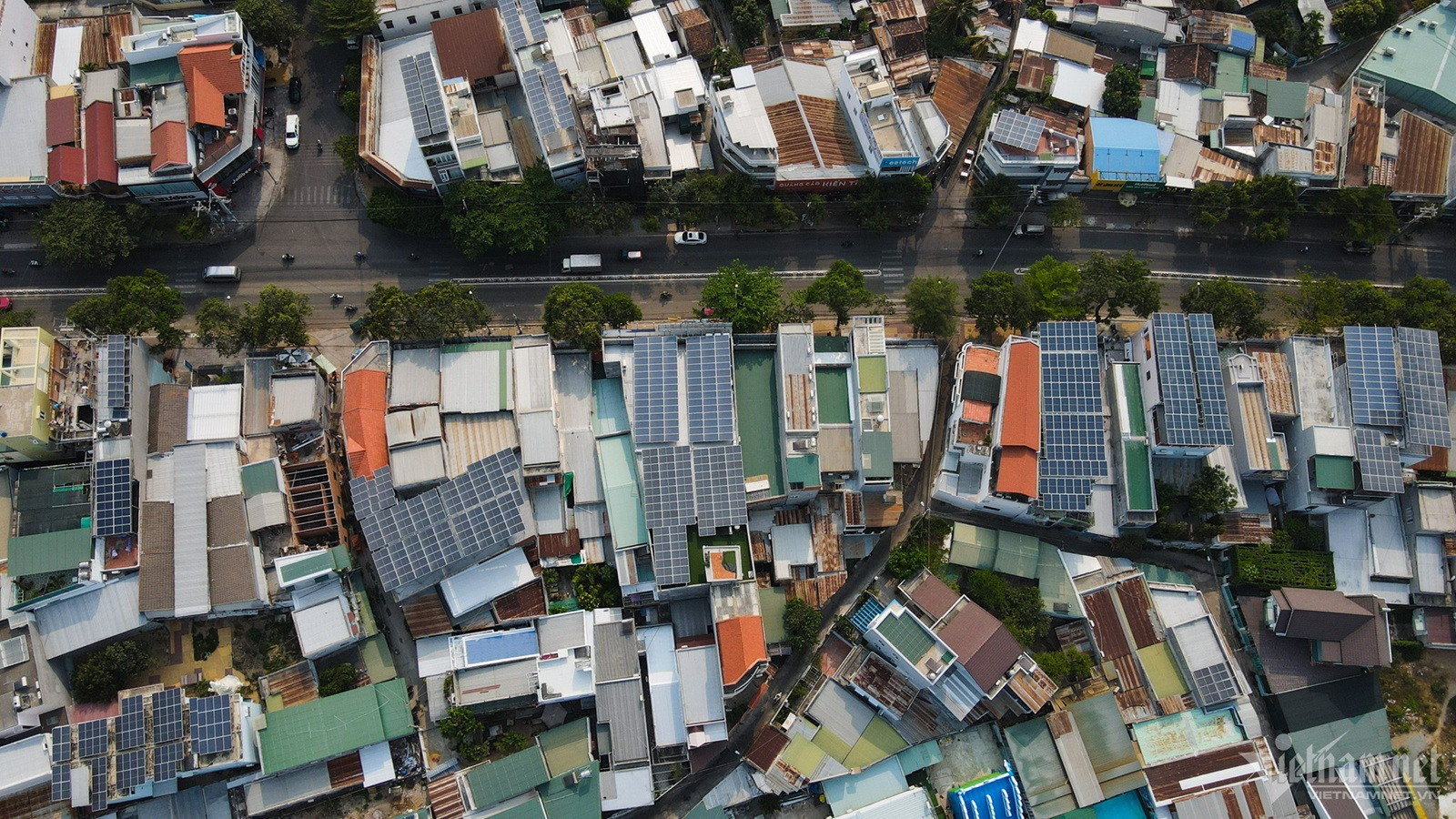
On July 14, MOIT said after receiving Dispatch No 4844 dated July 10, 2024 from the Government Office, the ministry invited the ministries of Justice (MOJ) and Finance (MOF) and Electricity of Vietnam (EVN) to attend a meeting at MOIT’s head office.
MOIT reported and explained the directions by the Prime Minister and Deputy Prime Minister Tran Hong Ha shown in Dispatch 4844.
Right after the meeting, the ministry released a document clarifying Ha’s opinion which clearly said that, first, to encourage the development of clean power generation sources, MOIT needs to pilot a policy on allowing rooftop solar power system owners to sell excess electricity to the national grid, and that the volume of electricity to sell must not be higher than 10 percent of total capacity.
Replying to an opinion from EVN, MOIT suggested a mechanism to define excess electricity volume to be sold to the national grid. There would be three options.
Option 1: Self-sufficient rooftop solar power will bear limitations in the volume of excess electricity to be sold to the national grid (10 percent of installation capacity). This can be implemented by installing an export control device.
Option 2: Self-sufficient rooftop solar power systems’ owners will get payment equal to 10 percent of electricity output out of the excess electricity to be provided to the national grid. The excess electricity volume will be measured by the electricity metering system.
Option 3: Rooftop solar power developers will get payment equal to 10 percent of total electricity output that clients buy from the national grid.
MOIT inclines towards Option 2, which it believes will help encourage the development of solar power, help save investment costs, and help avoid waste of society’s resources.
Regarding the pricing of excess electricity, MOIT suggested three options. After analyses, the ministry realized that all three options give a similar result – VND600-700 per kilowatt-hour.
Of the three options, Option 3 is simpler, easier to be implemented and can help reduce EVN’s investment costs.
Therefore, MOIT proposed applying the third option. The price recommended is VND671/kwh (as per EVN’s calculations about average avoidable cost in 2023. An avoidable cost is an expense that won’t be incurred if a particular activity is not performed).
Prior to that, EVN calculated that the average SMP (system marginal price) in 2023 was VND1,091.9/kwh, while the distribution cost in 2023 was VND263.87/kwh (EVN’s report to MOIT shown in Document No 2766 dated May 20, 2024). Meanwhile, the electricity prices in accordance with avoidable costs in 2023 were also set in MOIT’s Decision 1028 in 2023.
Consistent policies
In the draft report to Deputy Prime Minister, MOIT clearly shows its view about the idea that EVN is responsible for buying excess electricity and ensuring the safety of transmission network, as well as ensuring the harmonization and development of the mechanism.
According to MOIT, at a recent meeting, EVN’s leaders agreed to follow the directions by the Prime Minister and Deputy Prime Minister Tran Hong Ha (buying excess electricity from rooftop solar power systems to be provided to the national grid).
The solutions and designs of necessary conditions to avoid wrongdoings, embezzlement and waste of society’s resources are included in the provisions of the draft decree.
Regarding the opinion that the Ministry of Justice (MOJ) will coordinate with relevant agencies to ensure the legacy of the decree and current regulations, including the eighth national power development plan (Plan 8), MOIT reported that at the meeting, a MOJ representative said the decree needs assessments in case PM and Deputy PM Tran Hong Ha agree on MOIT’s proposed plan. The purchase/sale of excess electricity on the national electricity system is not suitable to Plan 8.
After collecting directions from Prime Minister and Deputy Prime Minister, as well as opinions of MOJ and EVN, MOIT completed a draft decree with the above mentioned proposed options (Clause 7, Article 8 of the draft).
Citing recent directions by the government, MOIT said that the ministry has been strictly observing the government’s directions in building a draft decree on self-sufficient rooftop power development.
“The criticism that MOIT has been inconsistent in designing policies and mechanisms related to rooftop solar power development is biased and inaccurate,” the ministry argued.
Luong Bang